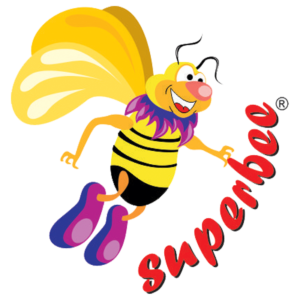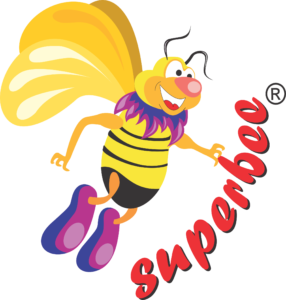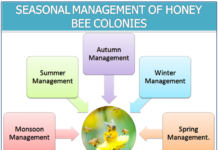Risk for Apiary Site selection
Contamination from the environment
- Heavy metals
- Radioactivity
- Pesticides
- Bacteria
- GMOs
- Antibiotics in waste water from pharmaceutical industry.
- Sugar mills, Sugar cane crushers, country KOHLLU or other foodstuff productions that could attract the bees.

Contaminants can be present on/in the flowers, in the water and in the air and possibly enter the honey produced by the bee colonies.
- Disturbance and annoyance due to power stations, highway, train tracks etc. situated near bee colonies.
- Fire due to lot of dry leaves around the apiary.
General Requirements for natural honey
- Honey is the natural sweet substance produced by Apis mellifera bees from the nectar of plants or from secretions of living parts of plants or excretions of plant-sucking insects on the living parts of plants, which the bees collect, transform by combining with specific substances of their own, deposit, dehydrate, store and leave in honeycombs to ripen and mature.
Recommendations for Selection of Apiary Site
- Apiary Site should be-
- Clean
- at dry place having shade
- open
- Near the supply of fresh running water near the area which is rich in flora

- Easy accessibility to road. however, in order to avoid disturbance, it should not be made near the large roads with very heavy traffic, power stations, highway, train tracks etc. and away from or any other activity that could be a source of stagnant/dirty water, chemical industry.
- Site should get proper sunshine especially morning and afternoon sunshine and free from dry leaves to avoid fire during summer.
- Wind breaks should be available whether artificial or natural.
- Within 2-3 kilometers, there should be no other commercial apiary site.
- Documentation shall show that pollen and nectar sources within a radius of 3 km around the apiary is free from large roads with very heavy traffic, industrial (chemical or sugar mill etc.) dumps, contaminated waters, cultivation of GMO crops or industry with contamination risk for the produced honey.

Are you looking for honeybee training courses in India?




